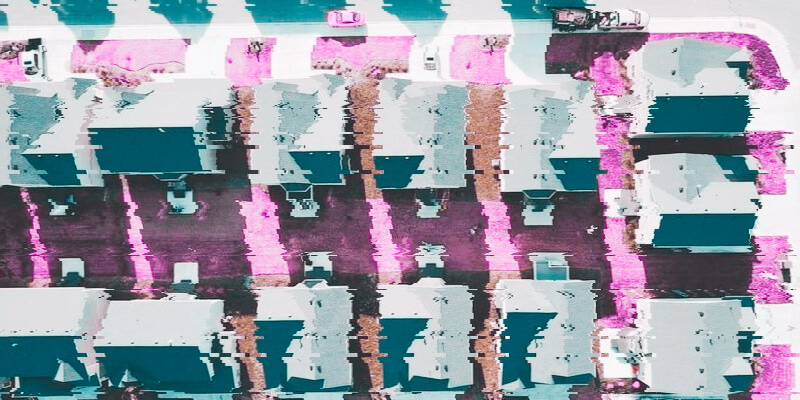Looking for Realism In an More and more Surreal World ‹ Literary Hub
You shouldn’t lose sleep over abstruse literary points, not when you may search the nice literary feuds and discover a author or two who has debated the difficulty, misplaced sleep, after which mates. In his current guide, Stranger than Fiction, Edwin Frank touches on the spat between H.G. Wells and Henry James. Wells apparently thought James’s literature was self-indulgent, occupied with a budget magic trick of conjuring actuality into prose, whereas insisting his personal work “doesn’t mirror actuality, however reasonably calls on us to acknowledge it…to query it and to alter it.” Frank sheds mild on Wells’ argument for utility in artwork: the novel should level at actuality, and try to resolve it.
Article continues after commercial
Writing in the course of the scientific leaps of the early 1900s, Wells evidently had a few of the identical hopes and fears for expertise and society that preoccupy us at this time. His work evokes a way of lovely alternative, but additionally a form of grim inevitability to progress, the place humanity burns up within the glare of its personal innovations. Wells extends or allegorizes up to date innovations in tales of house journey, time journey, vivisection…and there’s an irony in that. Making an attempt to understand maintain of the pressing, actual future he noticed unfolding round him—to assist readers acknowledge and query it—Wells invented science fiction, and actuality wiped out in its glare.
When actuality is as dramatically inconclusive as it’s at this time, studying realism provides us the prospect to get comfy with it.
That’s a flowery declare, however I don’t assume it’s a contentious one. Science fiction provides me many issues, and it may give glimpses of actuality and classes for actuality, but it surely doesn’t fairly give me realism. It’s necessary to know why not, as a result of it appears like realism wants a brand new dwelling, one with sufficient house for a gift day whose expertise is dystopia, whose intrigue is thriller, whose scandal is romance, and whose politics is fantasy. Literary fiction was once the house of realism, however actuality is so laden with plot twist, so ripe with creativeness, that it threatens to burst the perimeters of a literary fiction novel and flood into one other style. My abstruse literary situation is that this: how do you write realism when actuality resembles a style novel?
Amongst different issues, the Wells-James feud jogs my memory of the stress between realism and reality. If you focus an excessive amount of on reality, paradoxically you lose what’s actual. Because the creator L. Penelope places it, “Fiction writers should cope with the distinction between realism and verisimilitude…the distinction between reality and…‘truthiness’.” The impressionist portray evokes extra reality than the {photograph}.
The truthiness in sci-fi doesn’t come from its subject material, which travels so satisfyingly removed from actuality. It comes reasonably from sci-fi’s messaging, which tends to neatly pin down the urgent hopes, and extra typically fears, of the day. The fictional masks of intergalactic warfare, aliens, and marine civilisation solely barely camouflage the real-world considerations of warfare, immigration, and local weather change. Arguably, it’s even the distant unreality of the masks that triggers us to seek for a up to date message beneath it.
Wells and different sci-fi writers seek for the horrible penalties to up to date issues, after which paint them into fluorescent, stunning warnings: Orwell’s 1984 stays a helpful reminder of the crucial to withstand surveillance. The usefulness might be extra refined as nicely. Laila Lalami sees dystopias as offering a form of catharsis in a difficult age: writing about her current novel, The Dream Resort, she mentioned, “I felt a surge of hope after I was completed. Imagining the worst one way or the other helped me to exorcise it.” The identical can occur for readers.
Modern usefulness could make literature seem much less realist as a result of it provides it the standard of seeming time-stamped, as if the reality isn’t everlasting, but it surely doesn’t really feel proper to say that realism can’t be helpful; and in any case, everlasting truths are discovered throughout nice sci-fi. Ursula Okay. Le Guin may not have agreed that sci-fi can’t be realist, simply that it normally isn’t, partially due to the characterisation of science as a heroic, dominating, progress-obsessed, spear-in hand endeavor. Keep away from this “techno-heroic” observe and “one nice facet impact is that science fiction might be seen as a far much less inflexible, slender subject…much less a mythological style than a practical one.”
It isn’t essentially the techno-heroism, the grim classes, or the truthy considerations that get in the best way of sci-fi’s realism for me. I believe it’s extra to do with the sense of conclusiveness that I get from sci-fi’s imaginings. The author imagines a brand new or various observe, and the act of imagining can’t assist however develop into an act of conclusion. If you happen to think about a future, you additionally select a future. You select one vacation spot, one consequence, and that is the place the realism ends for me.
For me, inconclusiveness is the defining attribute of realism. Patchy plots, vacillating characters, flip-flopping truths, open endings, unfixed worlds. And that is what makes realism helpful. When actuality is as dramatically inconclusive as it’s at this time, studying realism provides us the prospect to get comfy with it.
Nothing is invented, the whole lot is realist, even the unrealistic issues.
Which brings us again to literary fiction. Literary fiction is nice at inconclusiveness—even the time period “literary fiction” is undefined. No style—for those who may even name it that—is healthier at coping with messiness, no style has the liberty, the pliability, the endurance, or the house for realism. However for little outdated literary fiction to take care of the large, grubby, technophilic, plotty current, it must develop and evolve when it’s already battered and bruised. This can be a style that we’ve got stripped of its romance, thrill, thriller, hypothesis, spinning such worth propositions out into their very own genres. It’s a style that will get mistakenly linked to elitism, pretension, and glamour, to the alienation of readers. It used to say possession of the “reality”—the reality of affection, hate, psychology, household, life—however it’s shedding even this declare to standard, sciencey non-fiction.
And but, I’ve religion. There are realist literary novels that deal with at this time’s futuristic subjects. These books aren’t secret or area of interest. Samantha Harvey’s Orbital makes house touchable. Patricia Lockwood’s No person Is Speaking About This lands the unreality of social media. Catherine Lacey’s The Solutions provides emotion sensing tech the ridicule it wants. Somewhat than imagining the longer term, the troublesome factor these writers do is think about the current. Nothing is invented, the whole lot is realist, even the unrealistic issues. This doesn’t really feel straightforward, however I’m unsure literary fiction ever was.
Literary fiction has the capability for the current. A component of Wells’s work that Frank feedback on is pleasure. “Fashionable science had opened up an unknown world, and terrifying although which may be, it was additionally thrilling…That is what literature needed to convey, and Wells did convey it.” If not realism, literary fiction can be taught different issues from science fiction.
__________________________________

Sike by Fred Lunzer is out there from Celadon Books, an imprint of Macmillan, Inc.

0 Comment